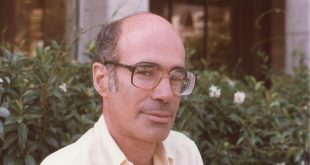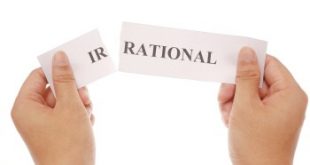Econometric toolbox developers get this year’s ‘Nobel prize’ in economics Many of the big questions in the social sciences deal with cause and effect. How does immigration affect pay and employment levels? How does a longer education affect someone’s future income? … This year’s Laureates have shown that it is possible to answer these and similar questions using natural experiments. The key is to use situations in which chance events or policy changes...
Read More »Statistics and econometrics — science building on fantasy worlds
Statistics and econometrics — science building on fantasy worlds In econometrics one often gets the feeling that many of its practitioners think of it as a kind of automatic inferential machine: input data and out comes casual knowledge. This is like pulling a rabbit from a hat. Great — but first you have to put the rabbit in the hat. And this is where assumptions come into the picture. The assumption of imaginary ‘super populations’ is one of the many...
Read More »Why technical fixes will not rescue econometrics
Why technical fixes will not rescue econometrics On the issue of the various shortcomings of regression analysis and econometrics, no one sums it up better than David Freedman in his Statistical Models and Causal Inference: In my view, regression models are not a particularly good way of doing empirical work in the social sciences today, because the technique depends on knowledge that we do not have. Investigators who use the technique are not paying...
Read More »Science before statistics — causal inference
Science before statistics — causal inference .[embedded content]
Read More »Probability and rationality — trickier than most people think
Probability and rationality — trickier than most people think The Coin-tossing Problem My friend Ben says that on the first day he got the following sequence of Heads and Tails when tossing a coin: H H H H H H H H H H And on the second day he says that he got the following sequence: H T T H H T T H T H Which report makes you suspicious? Most people yours truly asks this question says the first report looks suspicious. But actually both reports are equally...
Read More »Reverse causal reasoning and inference to the best explanation
Reverse causal reasoning and inference to the best explanation One of the few statisticians that yours truly has on his blogroll is Andrew Gelman. Although not sharing his Bayesian leanings, I find his thought-provoking and non-dogmatic statistical thinking highly recommendable. The plaidoyer infra for “reverse causal questioning” is typical Gelmanian: When statistical and econometrc methodologists write about causal inference, they generally focus on...
Read More »Instrumental variables — in search for identification
Instrumental variables — in search for identification We need relevance and validity. How realistic is validity, anyway? We ideally want our instrument to behave just like randomization in an experiment. But in the real world, how likely is that to actually happen? Or, if it’s an IV that requires control variables to be valid, how confident can we be that the controls really do everything we need them to? In the long-ago times, researchers were happy to...
Read More »Causal discovery and the faithfulness assumption (student stuff)
Causal discovery and the faithfulness assumption (student stuff) .[embedded content] For more on the (questionable) faithfulness assumption, cf. chapter six of Nancy Cartwright’s Hunting causes and using them.
Read More »Conditional probabilities (student stuff)
Conditional probabilities (student stuff) .[embedded content]
Read More »Which causal inference books to read
Which causal inference books to read Source All suggestions are highly readable, but for the general reader, yours truly would also like to recommend The book of why by Pearl & Mackenzie.
Read More » Heterodox
Heterodox





